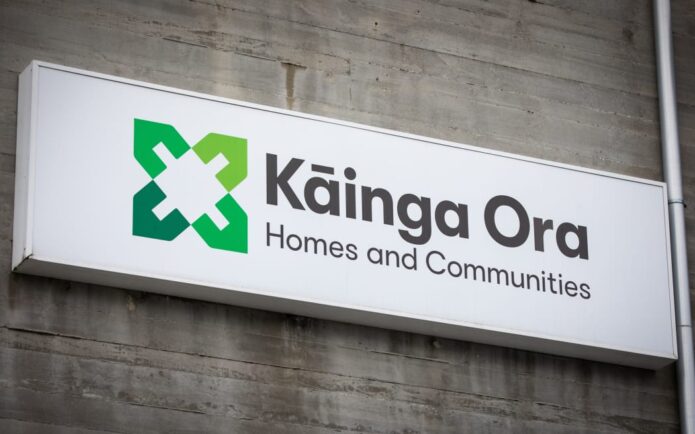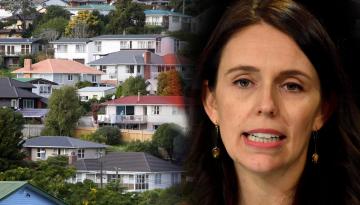PHOTO: Jacinda Ardern and the BPPM & BUST on the New Zealand property market go hand in hand. GETTY
Residential properties have seen the biggest drop in value in more than 15 years.
2023 PRICING: Profile YOU on this website! – FOR 12 MONTHS | ONLY $999 plus GST
The QV House Price Index showed home values fell nationally by an average of 10.3 percent last year, in stark contrast to strong gains seen in the previous couple of years.
The average national home value increased 13.3 percent in 2020 and 28.4 percent in 2021, or from $724,185 three years ago to $1,053,315 at the peak of the market.
The average home value began 2023 at $944,767.
Quotable Value chief operating officer David Nagel said there could well be a few more bumps in the road ahead.
“It’s been a relatively quiet start to the summer, which hasn’t been helped by some of the atrocious weather we’ve had to endure,” he said.
“More significantly, people seem to be taking note of widespread forecasts of further interest rate rises and a likely recession to come in 2023 and they’re now being much more cautious than they have been these past few years.”
Commenting on Prime Minister Jacinda Ardern‘s decision to step down, he said the property market does not like uncertainty.
If a new Labour leadership came out firing and won the election it could be negative for the housing market.
A National-led government that would likely be more sympathetic to immigration and to property investment would have a positive effect on the market.
There were investors with funds waiting for the market to bottom out and they were likely to purchase once they saw that.
“If they see that there’s very likely to be a National-led government that will have a favourable impact on the residential property market then they’ll probably start pulling their hands out of their pockets and they’ll start buying property.”
National’s policy of reinstating the interest deductability for investment properties and its approach to immigration appealed to property investors, Nagel said.
Nagel said global events had also taken a toll on the market.
Jacinda Ardern not convinced by ‘ghost home’ concerns despite data showing 40,000 vacant in Auckland
“Covid-19 isn’t going anywhere anytime soon, the situation in Ukraine is ongoing, wild weather events only appear to be increasing, and this is an election year to cap it all off.”
The average fall in home values hit the main urban centres the hardest, with the Wellington Region (-18.6 percent), Palmerston North (-15.7 percent), Hastings (-13.4 percent), Auckland (-12.3 percent), and Napier (-11.6 percent) rounding out the top five.
Residential house prices in New Plymouth (-2.5 percent), Christchurch (-2.2 percent) and Marlborough (-1.5 percent) were also down, while Queenstown (+5.9 percent) was the most resilient location.
“It looks highly likely that we will experience a good deal more economic pain to help curb inflation this year, particularly if a recession does come to pass and unemployment figures start to climb as a result,” Nagel said.
“Increasing interest rates will continue to impact the residential property market, with those who purchased around the peak of the market in 2021 most likely to bear the brunt of that.”
READ MORE VIA NEWSHUB
MOST POPULAR
- Claims about Jacinda Ardern’s wealth
- Lisa Marie Presley dead at 54 – How did she lose all the Elvis millions? | WATCH
- Real estate agent acted recklessly hugging and kissing a buyer
- Real estate agent’s inspection nightmare
- Property investor charged with fraudulently obtaining millions of dollars in home loans
- Grand Designs NZ: Off-grid Taylors Mistake house still not finished
- ‘It was no palace’: Prince Harry admits he was ‘EMBARRASSED’ to show Meghan Markle his Nottingham Cottage home | WATCH
- Where have all the property buyers gone?
- Abandoned land for sale
- THE ANCIENT STONE CITY: Proof of NZ civilisation before Kupe


















